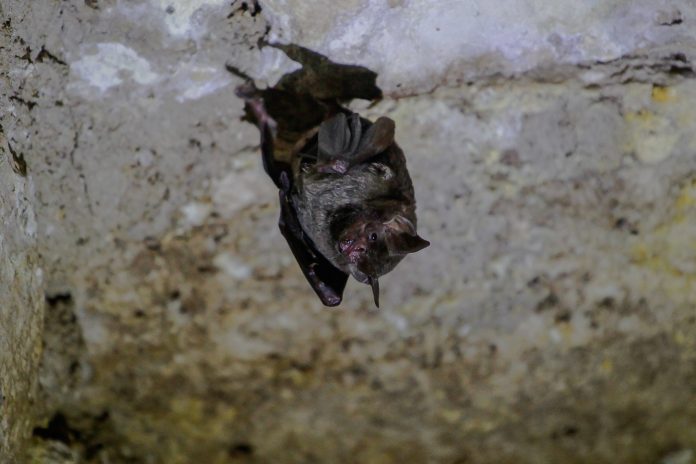A new paper, published by Oxford University Press, has found that wild vampire bats socially distance themselves from their community when they are sick
A new paper in Behavioral Ecology, published by Oxford University Press, has found that sick vampire bats in the wild spend less time near others from their community, which helps to slow down the spread of disease. The research team had previously seen this behaviour in a lab controlled study and have now used a field experiment to confirm it in the wild.
The researchers attached proximity sensors to the bats and released them back into their hollow tree. They then tracked the changes among all 16 “sick” bats and 15 control bats under natural conditions.
Social distancing
Compared to control bats, “sick” bats spent less time with others and were less socially connected to healthy groupmates.
During the six hours of the treatment period, a ‘sick’ bat associated on average with four fewer associates than a control bat. A control bat had, on average, a 49% chance of associating with each control bat, but only a 35% chance of associating with each “sick” bat. During the treatment period, “sick” bats spent 25 fewer minutes associating per partner.
These differences declined after the treatment period.
“The sensors gave us an amazing new window into how the social behaviour of these bats changed from hour to hour and even minute to minute during the course of the day and night, even while they are hidden in the darkness of a hollow tree,” said the study’s lead author, Simon Ripperger. “We’ve gone from collecting data every day to every few seconds.”
You can find the full paper here: https:/











